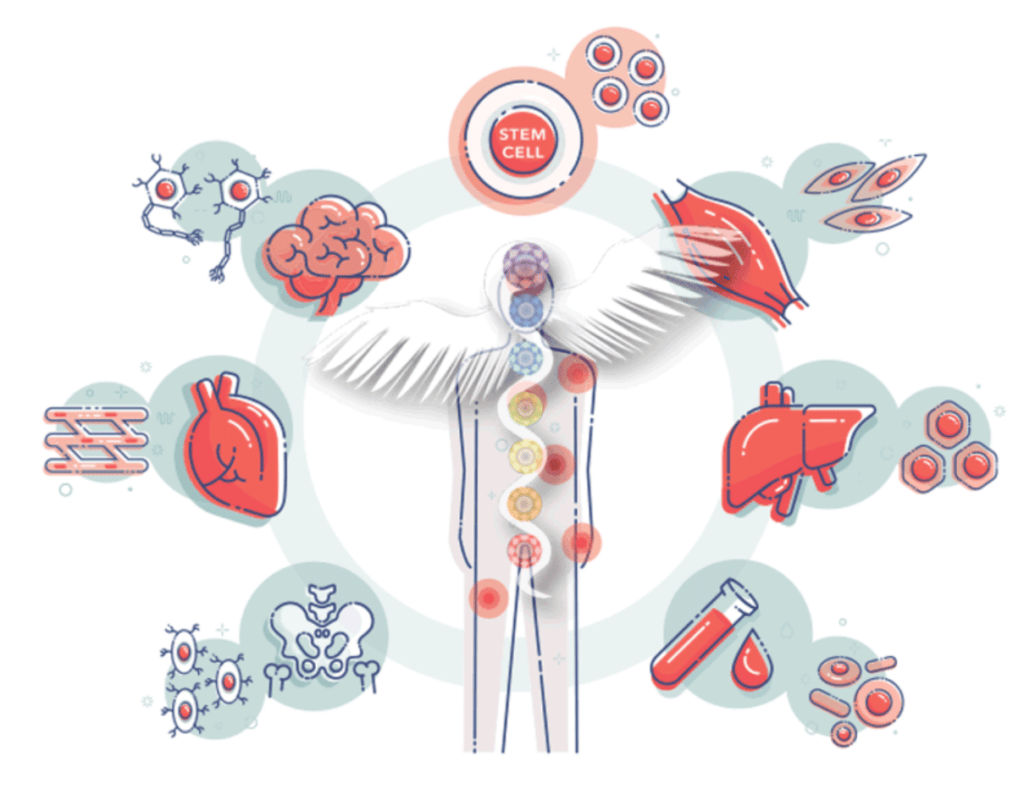A stem cell is basically any cell that can replicate and differentiate. This means the cell can not only multiply, it can turn into different types of tissues. There are different kinds of stem cells. Most people are familiar with or have heard the term “embryonic stem cell.” These are cells from the embryonic stage that have yet to differentiate – as such, they can change into any body part at all. These are then called “pluri-potential” cells. Because they are taken from unborn or unwanted embryos, there has been considerable controversy surrounding their use. Also, while they have been used in some areas of medicine – particularly, outside the United States – they have also been associated with occasional tumor (teratoma) formations. There is work being conducted by several companies to isolate particular lines of embryonic stem cells for future use.
Another kind of stem cell is the “adult stem cell.” This is a stem cell that already resides in one’s body within different tissues. In recent times, much work has been done isolating bone-marrow derived stem cells. These are also known as “mesenchymal stem cells” because they come from the mesodermal section of your body. They can differentiate into bone and cartilage, and probably all other mesodermal elements, such as fat, connective tissue, blood vessels, muscle and nerve tissue. Bone marrow stem cells can be extracted and because they are low in numbers, they are usually cultured in order to multiply their numbers for future use. As it turns out, fat is also loaded with mesenchymal stem cells. In fact, it has hundreds if not thousands of times more stem cells compared to bone marrow. Today, we actually have tools that allow us to separate the stem cells from fat. Because most people have adequate fat supplies and the numbers of stem cells are so great, there is no need to culture the cells over a period of days and they can be used right away.







